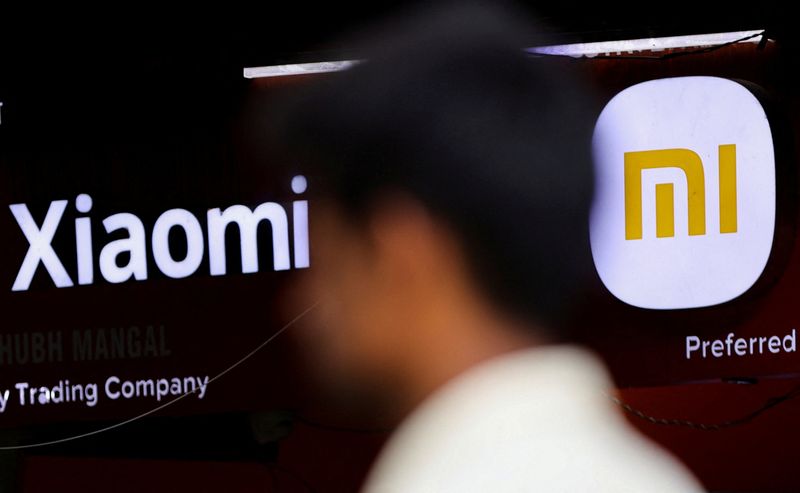By Aditya Kalra and Munsif Vengattil
NEW DELHI (Reuters) - Indian investigators have alleged Chinese smartphone maker Xiaomi Corp's India unit misled its banker Deutsche Bank AG (ETR:DBKGn) for years by claiming it had an agreement for payment of royalties when it had none, legal documents showed.
Xiaomi has locked horns with India's financial crime fighting agency, the Enforcement Directorate, since it froze $670 million of the company's bank assets saying a probe found the smartphone seller made "illegal remittances" to U.S. chip firm Qualcomm (NASDAQ:QCOM) and others in the "guise" of royalties.
Xiaomi denies wrongdoing and approached an Indian court arguing its payments were legitimate and that the assets freeze - later confirmed by an appeals authority - had "effectively halted" its operations in a key market. The court in October declined any relief and the case will next be heard on Nov. 7.
Documents contained in Xiaomi's Oct. 3 court filing shed new light on the investigation's findings, and show federal agents found suspected irregularities in the way its India unit made transfers as royalties to Qualcomm for licensed technologies such as patents.
According to the court documents, which contained the enforcement agency's findings, a Deutsche Bank India executive confirmed to the federal agents in April that Indian law required the drawing up of a legal agreement between Xiaomi India and Qualcomm to make royalty payments, and the smartphone company disclosed to the bank such an agreement existed.
Xiaomi India did not share the agreement with the bank due to confidentiality reasons, Deutsche told investigators, according to the documents.
However, during the investigation, Xiaomi's India CFO, Sameer B. S. Rao, and its managing director at the time, Manu Kumar Jain, admitted there was no agreement between Qualcomm and Xiaomi India, and the royalties were remitted based on directions received from the group's executives in China, the Indian agency stated, the documents showed.
Xiaomi "provided misleading information to the bank. They did not share the agreement with the bank which they referred (to) as the basis of payment," the agency noted in its assessment.
"This shows ... their intention of remitting the money outside India as per the whims and fancies of the Chinese parent," it added.
A spokesperson for Deutsche Bank declined to comment. One of Xiaomi's four frozen bank accounts in India is at Deutsche, according to the court documents.
Qualcomm, in a statement, said under "the license with Qualcomm, Xiaomi India pays royalties on all devices sold in India". Both didn't answer questions related to royalty agreements.
Rao, Jain and the Enforcement Directorate did not respond.
Xiaomi, India's biggest smartphone player with a 21% market share, said it continues to stand by its "position on the legality of the royalty payments," referring Reuters to an Oct. 2 statement.
In that statement, it said Xiaomi India was an affiliate and one of the Xiaomi Group companies, which entered into a legal agreement with Qualcomm. It was "legitimate" for the India unit to pay the U.S. firm, the statement added.
Indian authorities do not agree with that and say Xiaomi India only acts as a reseller of smartphones that are made by contract manufacturers. Given the Indian unit has no role in designing phones, it had "nothing to do" with royalty payments to Qualcomm, the agency assessed, according to the court documents.
Many Chinese companies have struggled to do business in India due to political tensions following a border clash in 2020. India has cited security concerns in banning more than 300 Chinese apps and tightened investment norms for Chinese firms.
In the Xiaomi probe, the company alleged Rao and Jain faced threats of "physical violence" during questioning by the Indian agency, Reuters reported in May. The agency called the allegations "untrue and baseless".
